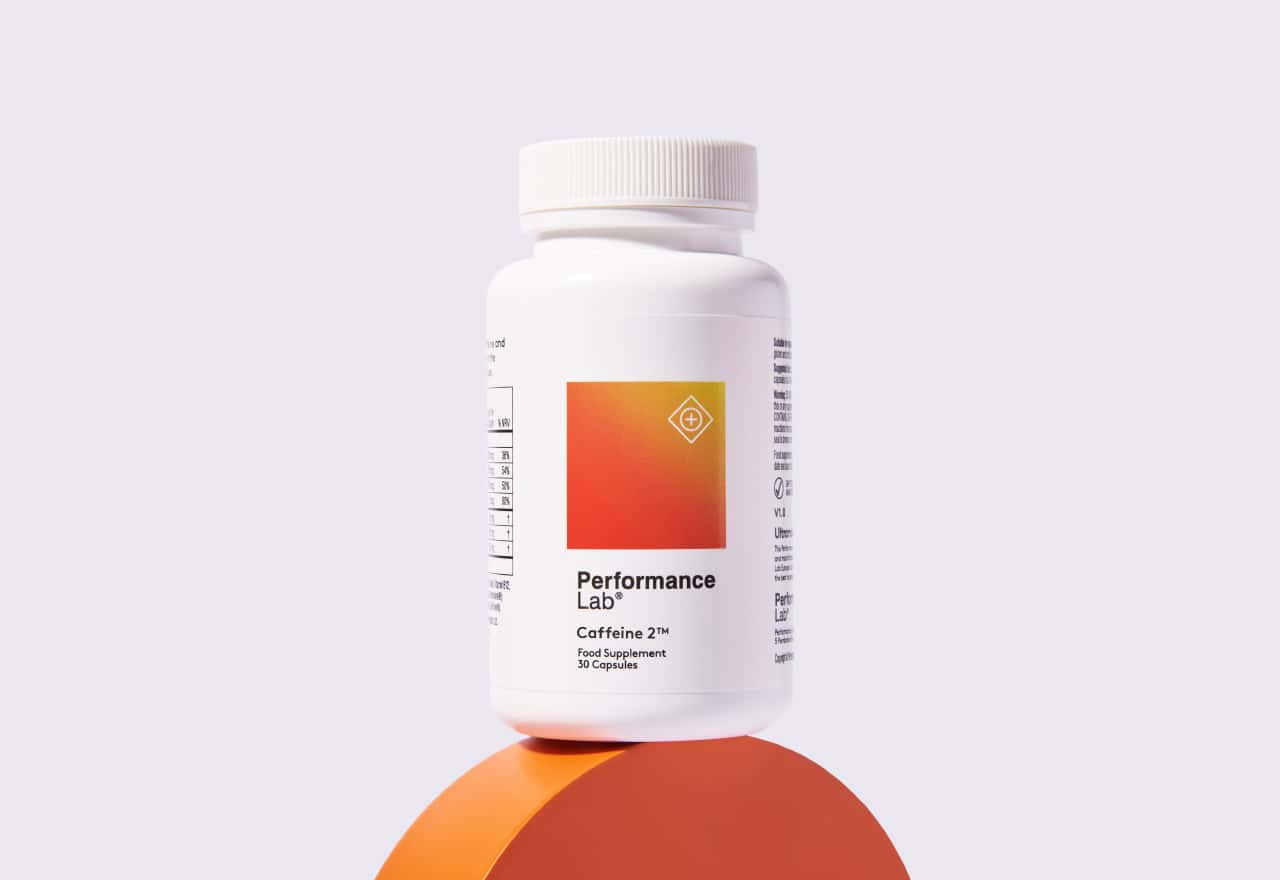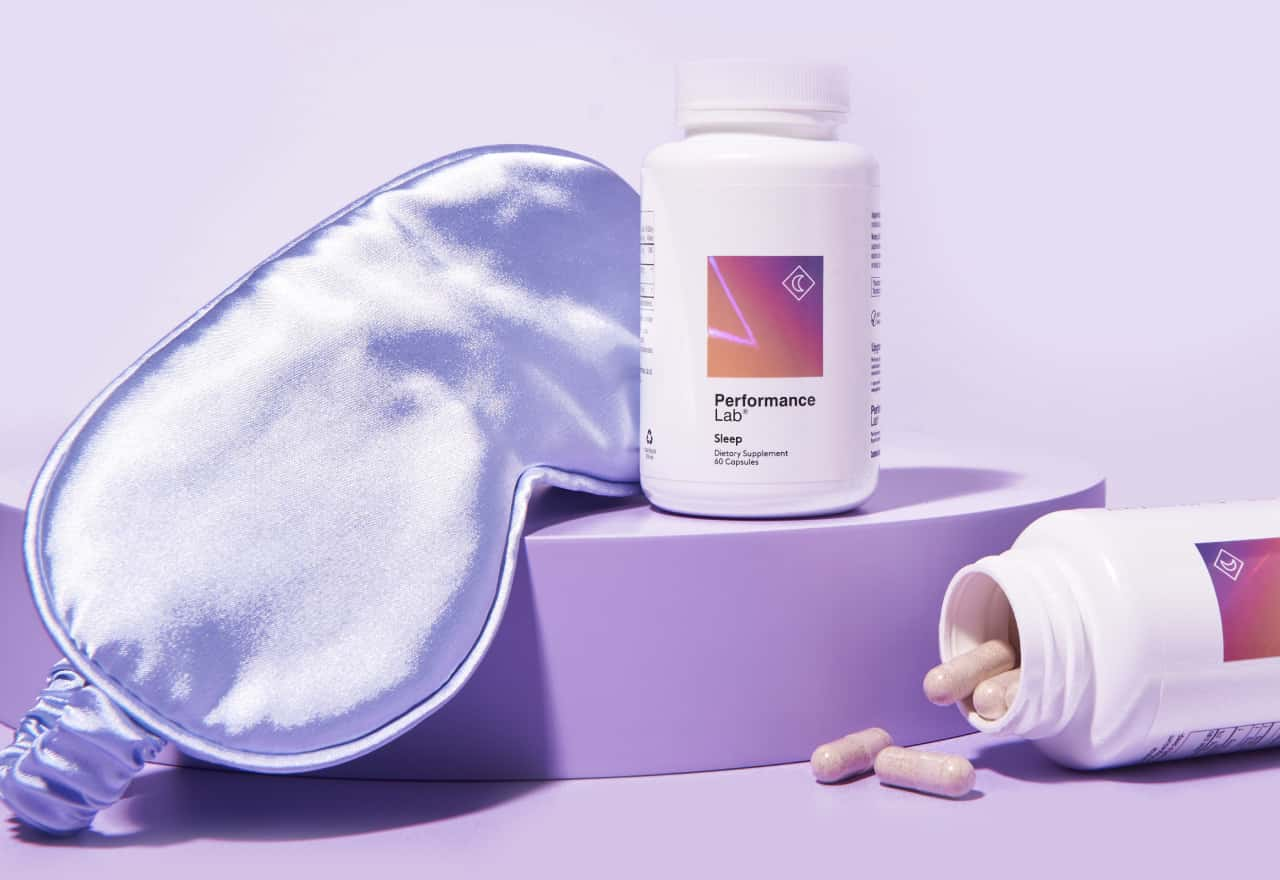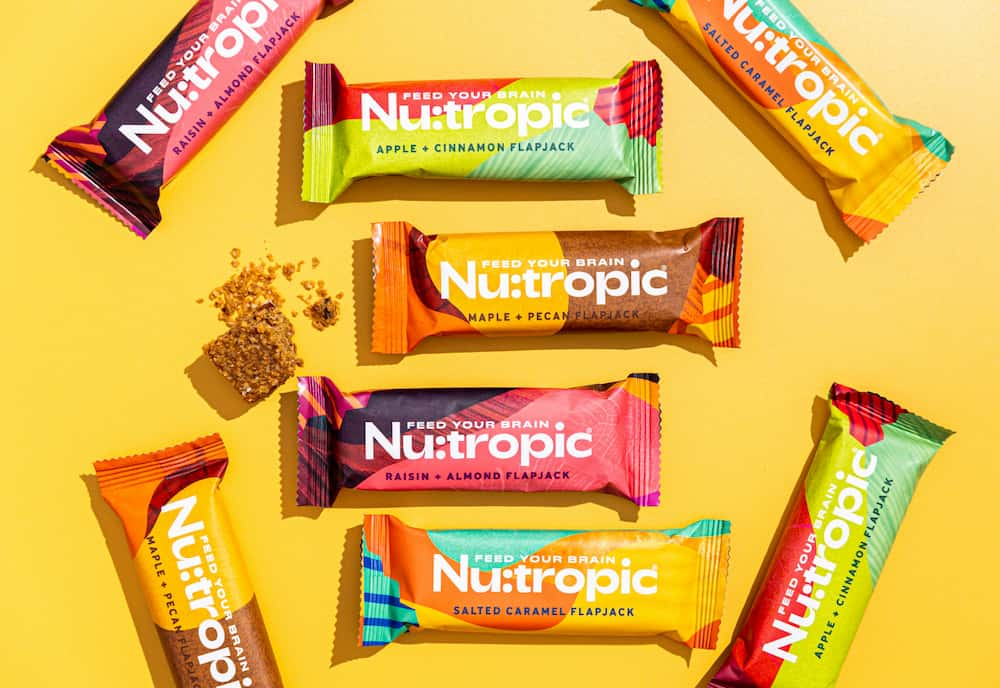There are hundreds of different herbs, vitamins and minerals nootropics. But did you know amino acids for brain health can also serve as nootropics? Amino acids are the building blocks of protein and our body structure, playing vital roles over the course of our whole life.
In this article, we will discuss the benefits of common nootropic amino acids, specifically for focus and attention, and how you can use them to support healthy cognitive function.
We'll also recommend some high-quality supplements that supply brain-healthy amino acids, so you can start incorporating these nootropics into your daily regimen. Let's get to it!
Experience a Research-Backed Nootropic Supplement
Mind Lab Pro® is the world's most effective nootropic supplement. It is scientifically shown to enhance brain function.(1,2)
- Focus, clarity, speed of thought
- 100% safe, clean, plant-based
- Natural energy boost in the brain
- Supplies amino acids for brain health
- 30 day money back guarantee
- 11 brain supplements in 1 formula
GET THE BEST MIND LAB PRO DEAL NOW
Amino Acids as Nootropics
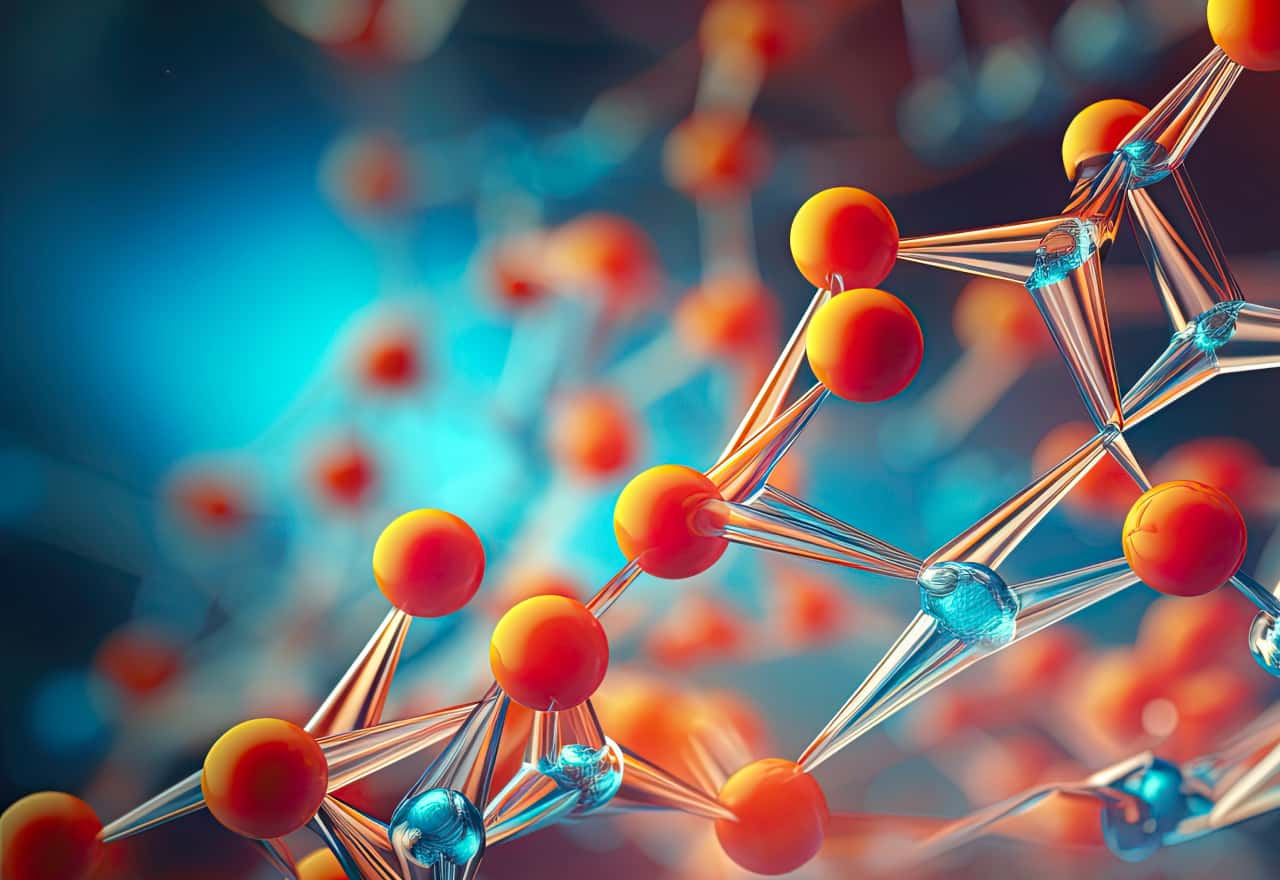
Amino acids are organic compounds that make up protein, often referred to as the building blocks of protein. They are needed for many vital processes in the body, such as building protein, synthesizing hormones and neurotransmitters, and boosting athletic performance.
There are 20 amino acids in total, 9 of which are essential - meaning that our body cannot naturally produce them, so we must obtain them through the diet.
Each plays a unique role in the body. Here is a list of these major amino acids, with the nine essential amino acids in bold text:
- Alanine (Ala, A)
- Arginine (Arg, R)
- Asparagine (Asn, N)
- Aspartic acid (Asp, D)
- Cysteine (Cys, C)
- Glutamic acid (Glu, E)
- Glutamine (Gln, Q)
- Glycine (Gly, G)
- Histidine (His, H)
- Isoleucine (Ile, I)
- Leucine (Leu, L)
- Lysine (Lys, K)
- Methionine (Met, M)
- Phenylalanine (Phe, F)
- Proline (Pro, P)
- Serine (Ser, S)
- Threonine (Thr, T)
- Tryptophan (Trp, W)
- Tyrosine (Tyr, Y)
- Valine (Val, V)
These amino acids are the building blocks of proteins and play critical roles in various biological processes in the body.
How do amino acids work as brain-boosting nootropics?
Dietary amino acids play several pivotal roles in supporting brain health and optimizing cognitive functions.
Supporting brain chemicals.
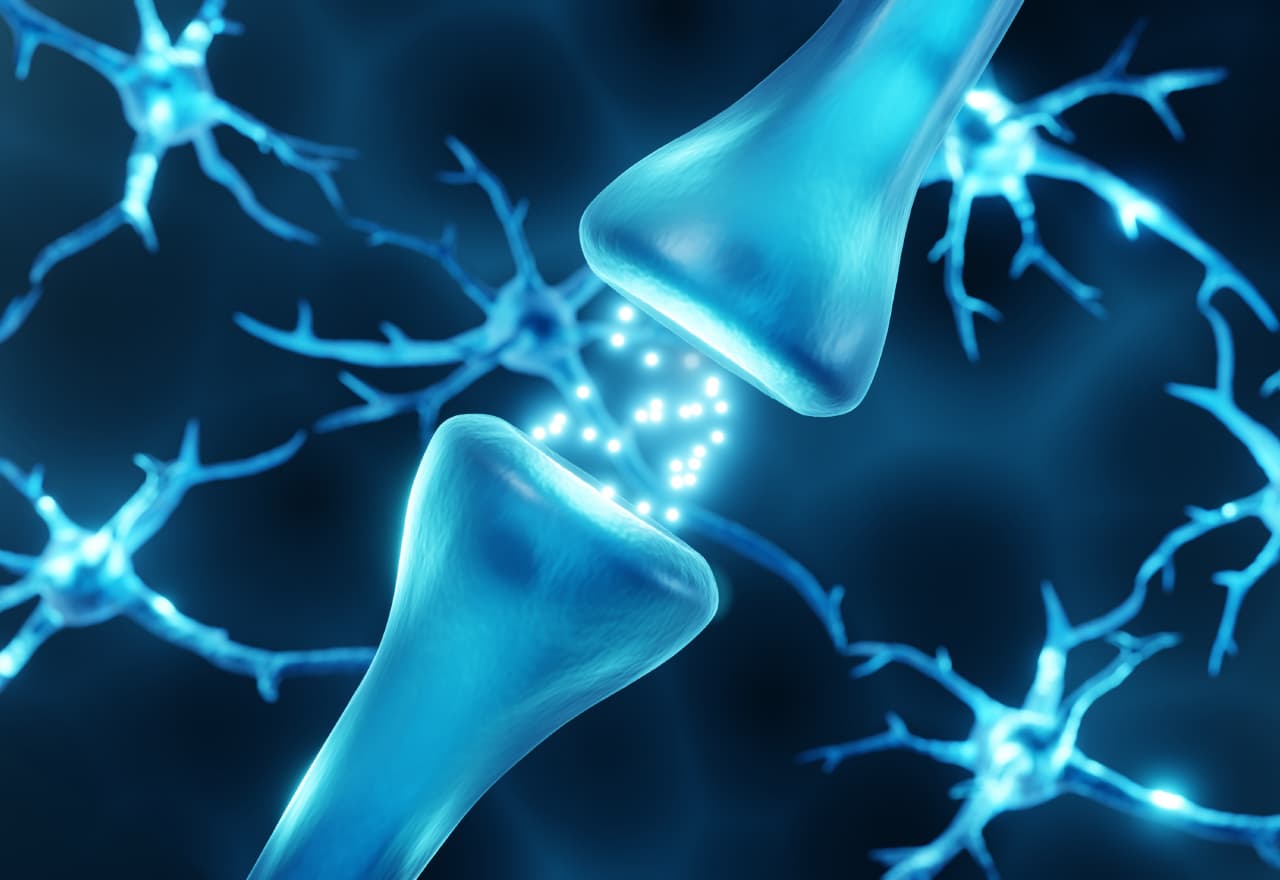
Amino acids serve as the building blocks for proteins and brain neurotransmitters, which are the brain's chemical messengers that facilitate communication between cells.(1)
- amino acids such as tyrosine, tryptophan, and phenylalanine are precursors to neurotransmitters dopamine and serotonin, which influence mood, alertness, and concentration.
- Glutamine, on the other hand, is a precursor to glutamate, a neurotransmitter vital for learning and memory.
Furthermore, certain amino acids work directly as brain chemicals. Amino acid neurotransmitters include GABA, which plays a role in reducing anxiety and promoting a sense of calm. As well as L-Tryptophan, which promotes relaxation and healthy sleep.
By altering brain chemistry, amino acids can help encourage certain mind-states associated with healthy mood and peak productivity.
Promoting cerebral circulation
Amino acids contribute to the synthesis of molecules like nitric oxide, which plays roles in regulating blood pressure, enhancing blood flow to the brain and ensuring a steady supply of oxygen and nutrients.(2) Robust blood flow to and from the brain may modify brain function for the better.
Nourishing mental recovery
Amino acids are often associated with sports nutrition. Training increases demand for amino acids in order to improve muscle mass and tone. This is why many athletes consume high protein content foods after training. The same can be said for the brain. You put your brain through vigorous daily workouts which exert you mentally. During this exertion, plasma amino acids are used up which we must replenish regularly to keep our brain functioning optimally.
Amino acids for brain repair
Leucine, isoleucine and valine are branched-chain amino acids (BCAAs). Although the BCAAs are often associated with sports nutrition, they have also been studied for their potential roles in assisting brain function and recovery from traumatic brain injuries.(3)
Supporting neuroprotection
Some aminos influence brain function with a "boost"; other amino acids are more subtle because they appear to support the long-range healthy structure and function of the brain and central nervous system.(4)
Did you know? Large neutral amino acids (LNAA), notably tryptophan, tyrosine and the branched-chain amino acids (BCAA), modifies tryptophan and tyrosine uptake into brain and their conversion to serotonin and catecholamines, respectively.
Top Nootropic Amino Acids for brain health
This article is focusing on amino acids for the brain, specifically.
While we won't cover all of the aminos, in the following section we take a closer look at the top amino acids and related compounds that can be used as nootropics (brain boosters).
L-Tyrosine

L-Tyrosine is one of the most effective amino acids for energy and focus, especially in the context of sharp cognitive performance during stress.
L-Tyrosine is considered one of the aromatic amino acids. Aminos in this class (which also includes L-Tryptophan, which we discuss in a moment) are typically used as precursors for the body. In other words, they are converted into other health-supportive substances.
In the case of L-Tyrosine, it is an aromatic amino acid that is used as a precursor for catecholamine brain chemicals, including dopamine synthesis and norepinephrine synthesis.(5) It is one of the most important neurotransmitter precursors for humans to consume.
Learn more about neurotransmitters serotonin, dopamine and norepinephrine.
As a nootropic, L-Tyrosine helps maintain brain chemicals that ensure proper mood balance, stress resistance, memory function and overall mental performance.
The challenge is that certain conditions can disrupt your brain chemistry. For example, if you are:
- performing tasks that require intense cognitive exertion
- under a considerable amount of daily stress
- multitasking; juggling a lot of challenging tasks at once
- not getting sufficient sleep, especially combined with mental exertion
This overall mental state, which many of us recognize in overworking or mental burnout, may be associated with low levels of catecholamines in the brain, as well as with depleted L-Tyrosine levels.(6)
Supplementing with L-Tyrosine helps restore healthy levels of this amino acid, as well as the brain chemicals it forms.
As a result, a substantial body of evidence suggests L-Tyrosine supplementation appears to sharpen high-performance cognition under various states of stress and distraction. It is associated with optimized attention, optimized focus, stress management, fatigue management and more.
Researchers in human studies have suggested that as a dietary amino acid, L-Tyrosine may help to enhance:
- Mood and cognition in people who are not getting enough sleep; counters sleep deprivation symptoms(7)
- Working memory in people who are given challenging multitasking tests(8)
- Overall cognitive function in people who are exposed to distracting loud noises(9)
- Learning ability and short-term memory function in subjects tested while placed in cold water(10)
Buying tip: Today's most advanced brain supplements tend to use the N-Acetyl L-Tyrosine (NALT) form because it increases amino acid availability. As a more bioavailable form, it may be easier for the body to absorb and utilize than plain L-Tyrosine.
L-Theanine

L-theanine is another compound which is not one of the standard 20 amino acids, but is still technically an amino acid. It is sourced from the leaves of the tea plant and has a similar shape to the amino acid glutamine.
As an amino acid for brain wellness, L-Theanine exerts a few intriguing mechanisms of action, working to:
- Tune the brain to the Alpha brain wave frequency (8-14 Hz). Enhanced Alpha waves are associated with feelings of relaxed alertness and crystal mental clarity.(11)
- Cross the blood brain barrier and directly influence some soothing brain chemicals, including serotonin and Gamma-aminobutyric acid (GABA).(12)
- Protect the brain. It's been suggested to regulate acidic amino acids glutamate, which can be neurotoxic when overactive. L-theanine also has neuroprotective antioxidant and inflammation-modulating activity.(13)
L-Theanine's bioactivities add up to some beneficial cognitive effects you can really feel. Most prominently, L-Theanine is associated with a state called "wakeful relaxation" where your mind is awake and alert, yet totally tranquil and calm. This state is great:
- for studying and learning new things
- for mediation
- for art creation
- for creative problem solving
In addition to its relaxing and calming effects, it has been linked to attention, sharp multitasking performance, clear cognition under stress and working memory.(14-17)
L-Theanine also has a unique benefit no other amino acid offers: It has been reported in scientific research to help reduce the unpleasant and jittery side effects of too much caffeine, instead promoting a calm, clear and smooth state of performance-driven stimulation.(18)
As one of the top amino acids for brain function, L-theanine is a great choice for anyone seeking reduced anxiety, clear focus, improved concentration, enhanced creativity and a more tranquil, stress-free state of mind.
Glutathione

It is produced naturally in the body and is found in every cell, where it plays a crucial role in maintaining cellular homeostasis, detoxifying harmful substances, and protecting cells from oxidative stress.
In the brain, glutathione is particularly important due to the high demand for oxygen and the high levels of fatty acids, which make brain tissues susceptible to oxidative damage.
Adequate levels of glutathione in the brain help to protect neurons from damage caused by free radicals, which are unstable molecules that can damage cells and contribute to aging and disease.
The role of glutathione in the brain can be summarized as follows:(19)
- Antioxidant Defense: Helps neutralize toxic free radicals, thereby protecting the integrity of brain cell membranes
- Detoxification: The brain is highly susceptible to the accumulation of toxic substances, and glutathione plays a key role in detoxifying and eliminating these harmful substances from neural tissues.
- Supporting Mitochondrial Function: Glutathione helps to maintain the function of mitochondria, the energy-producing structures in cells, which is particularly important in the energy-demanding environment of the brain.
When plasma amino acid levels of glutathione are low, the brain is more susceptible to stress and damage, which can contribute to cognitive decline, neurodegenerative problems, and other brain concerns.
Therefore, maintaining adequate levels of glutathione is considered important for supporting brain health and function.
L-Citrulline

L-citrulline is a non-essential amino acid, meaning that the body can produce it on its own. It is found in some foods, such as watermelon, and is also available as a dietary supplement. In terms of its effects on brain performance:
- Nitric Oxide Production: L-citrulline is a precursor to L-arginine, which is one of the acidic amino acids that is used to produce nitric oxide (NO).(20) Nitric oxide is a signaling molecule that plays a crucial role in various bodily functions, including the regulation of blood flow. In the brain, nitric oxide helps to regulate blood flow and may play a role in memory and learning.
Some research also suggests that L-citrulline may have antioxidant and inflammation-modulating properties, helping to neutralize factors that accelerate brain aging and raise risk for neurodegenerative concerns.(21)
Did you know? Glutathione and L-Citrulline are combined in a patented nutrient called Setria Performance Blend. When mixed, they produce a synergy: A greater nitric oxide boost than when either is administered alone. Setria Performance Blend is used in pre-workout supplements, where its circulation-boosting properties enhance mental intensity and physical strength. We discuss a good nootropic pre-workout (Pre Lab Pro) with Setria Performance Blend at the end of this article.
L-Tryptophan

Tryptophan is another one of the aromatic amino acids. It performs a number of functions in the human body, particularly pertaining to cognitive function, mood and relaxation-related brain activity.
As an aromatic amino acid, L-Tryptophan is a precursor to:(22)
- 5-hydroxytryptophan (5-HTP): A key building block for serotonin synthesis
- Serotonin: Used in the brain to help regulate sleep, appetite, mood, libido, and memory.
- Melatonin: Main sleep hormone involved in regulating our body clock, or circadian rhythm.
Dietary tryptophan is a key amino acid that can help individuals cope during periods of mental strain. These individuals use up brain serotonin quicker than usual, which places a higher demand for tryptophan.
Low brain tryptophan levels may increase anxiety. Supplementing with this amino acid may reduce insomnia, improve memory retention, support healthy libido, and improve concentration, focus, and sleep.
How to Get Amino Acid Nootropics
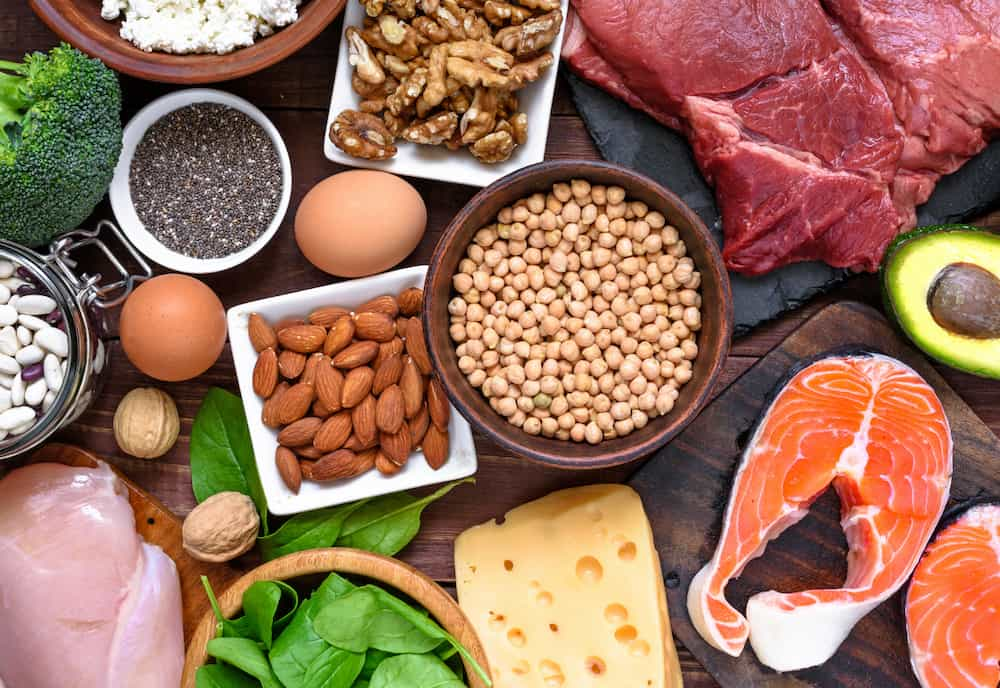
Foods rich in protein generally provide a good source of amino acids. Some examples:
Animal Sources of Amino Acids
- Eggs
- Chicken and turkey
- Fish (Salmon, Tuna, Cod)
- Beef
- Pork
- Dairy Products (Milk, Cheese, Yogurt)
- Shellfish (Shrimp, Crab, Lobster)
Plant Sources of Amino Acids
- Quinoa
- Soy Products (Tofu, Tempeh, Edamame)
- Chickpeas and Most Legumes
- Seeds (Chia Seeds, Flaxseeds, Hemp Seeds)
- Nuts (Almonds, Walnuts, Cashews)
- Whole Grains (Brown Rice, Oats, Barley)
- Leafy Greens (Spinach, Kale, Swiss Chard)
- Broccoli and Brussels Sprouts
Tip: Sea Buckthorn is a great natural source of amino acids.
Sea buckthorn is a small fruit with a big amino acid profile. It supplies 17 amino acids, including seven essential amino acids (threonine, valine, methionine, isoleucine, leucine, phenylalanine, and lysine).(23) While you won't find it in the produce section, Sea Buckthorn supplements are widely available.
Other Amino Acid Sources:
- Spirulina: A type of blue-green algae that is very high in protein.
- Nutritional Yeast: Often used in vegan cooking, it is a complete protein.
- Seitan: A high-protein meat substitute made from wheat gluten.
Did you know? One of the most popular food additives Monosodium glutamate (MSG) is not an amino acid itself, but it is closely related to aminos. It is the sodium salt of glutamic acid, which is a major acidic amino acid used to synthesize proteins in the body. Monosodium glutamate doesn't supply much, however, and is mainly used as a flavor-enhancing food additive rather than a source of nutrition.
To ensure you're getting all the essential amino acids (those your body can't make on its own), it's important to take supplements increase food intake that's rich in protein and aminos, especially if you follow a plant-based diet.
While you can take singular amino acids as a supplement, it's often recommended to take these amino acids as part of a nootropic stack or formula.
In the next section, we'll start detailing some high-quality supplements that supply amino acids for brain repair, mental health, normal brain function and more.
These are nootropics that happen to include the best aminos for the brain, along with other compounds that help support cognitive function.
Mind Lab Pro® is the Best Nootropic Supplement with Amino Acids
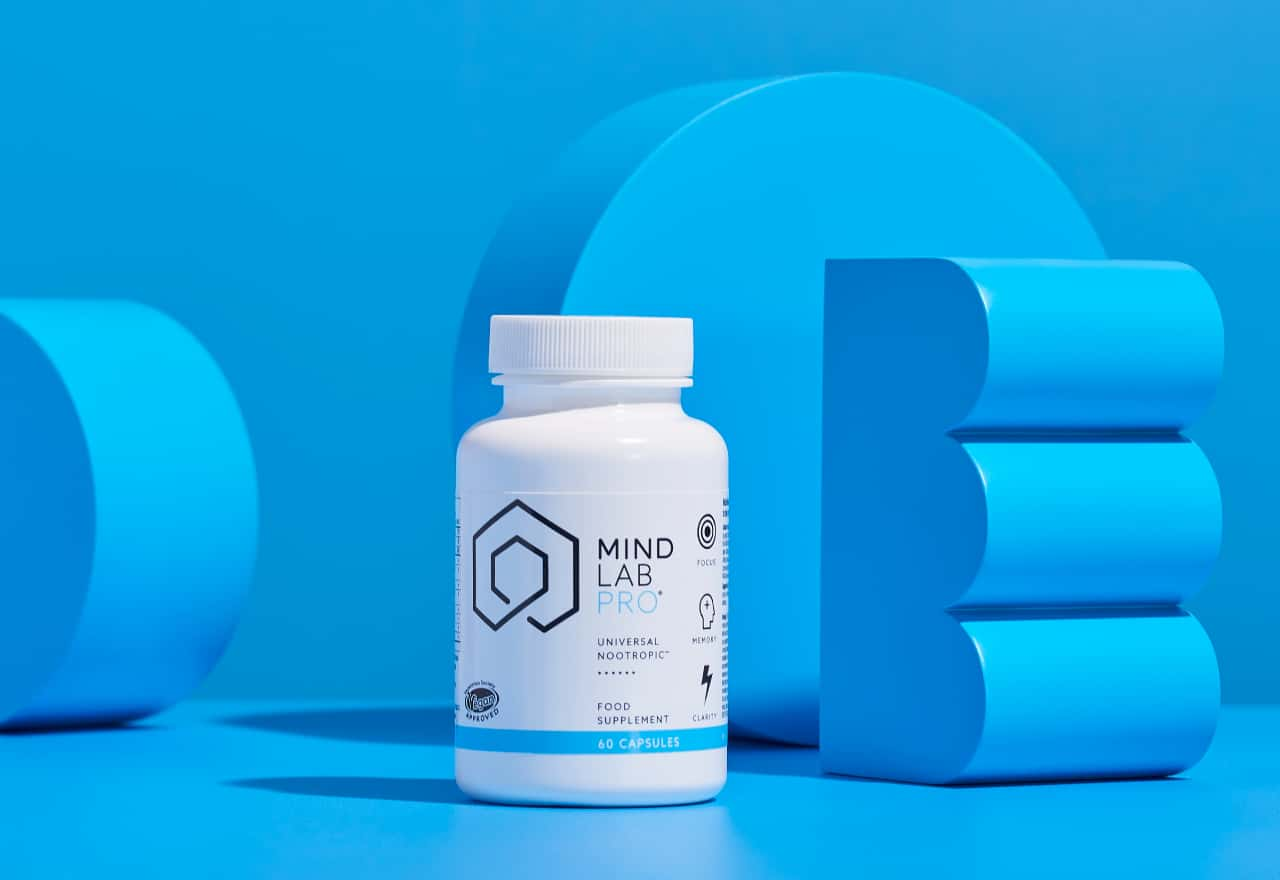
Mind Lab Pro® (MLP) is the best brain supplement on the market today, functioning as a "Universal Nootropic" that promotes practically every cognitive benefit possible.
MLP® combines 11 research-backed nootropics into one potent formula, and also includes the two most important dietary amino acids for mental performance and brain health: L-Tyrosine (as NALT) and L-Theanine. Its full ingredient list:
- Citicoline, dosage 250mg
- Phosphatidylserine (PS), dosage 100mg
- Bacopa monnieri, dosage 150mg (full-spectrum extract, 24% bacosides with 9 bioactives)
- Organic Lion's Mane Mushroom, dosage 500mg (fruit and mycelium)
- Maritime Pine Bark Extract, dosage 75mg: (Standardized to 95% proanthocyanidins)
- N-Acetyl L-Tyrosine, dosage 175mg
- L-Theanine, dosage 100mg
- Rhodiola rosea, dosage 50mg (Standardized to 3% rosavins and 1% salidrosides)
- NutriGenesis® B-Vitamins: Vitamin B6 (dosage 2.5mg), Vitamin B9 (100 mcg), Vitamin B12 (7.5 mg)
Due to its unique design, MLP "unlocks" a whole-brain boost associated with several different mental performance benefits:
- Sharper attention, concentration and focus
- A mental vitality boost without caffeine
- Memory enhancement: learning, recall, long-range
- Mood that is motivated, positive and resilient
- Optimal cognitive performance during stress
- Quick processing and overall mental clarity
In addition to offering the greatest versatile cognitive benefits, Mind Lab Pro® is also the highest quality supplement of its kind, across the board. It is clean (GMO-free, caffeine-free, soy-free, synthetic additive-free) and vegan; all delivered in 100% vegan capsules (prebiotic-infused NutriCaps®).
Learn More about Mind Lab Pro® Quality
Mind Lab Pro® is Backed by Research.

MLP® is also a rare supplement in that it has demonstrated benefits in real human clinical research:
- Study 1: Subjects taking MLP showed significant improvements (compared to placebo) in information processing tasks.(24)
- Study 2: Subjects taking MLP had significant improvements across multiple memory functions, including auditory, visual, visual working, immediate and delayed recall memory.(25)
Pricing & Shipping
- 1 Bottle (one month supply): $69 ($2.30/serving)
- 2 bottles (two month supply): $138 ($2.30/serving)
- Best deal: 3 bottles + 1 free, with free shipping: $207 ($1.73/serving)
- All covered by 30-day money back guarantee
Buy Performance Lab® MLP® Now
Additional Amino Acid Nootropic Supplements to Consider
Pre Lab Pro®: Best Nootropic Pre-Workout Stack with Amino Acids
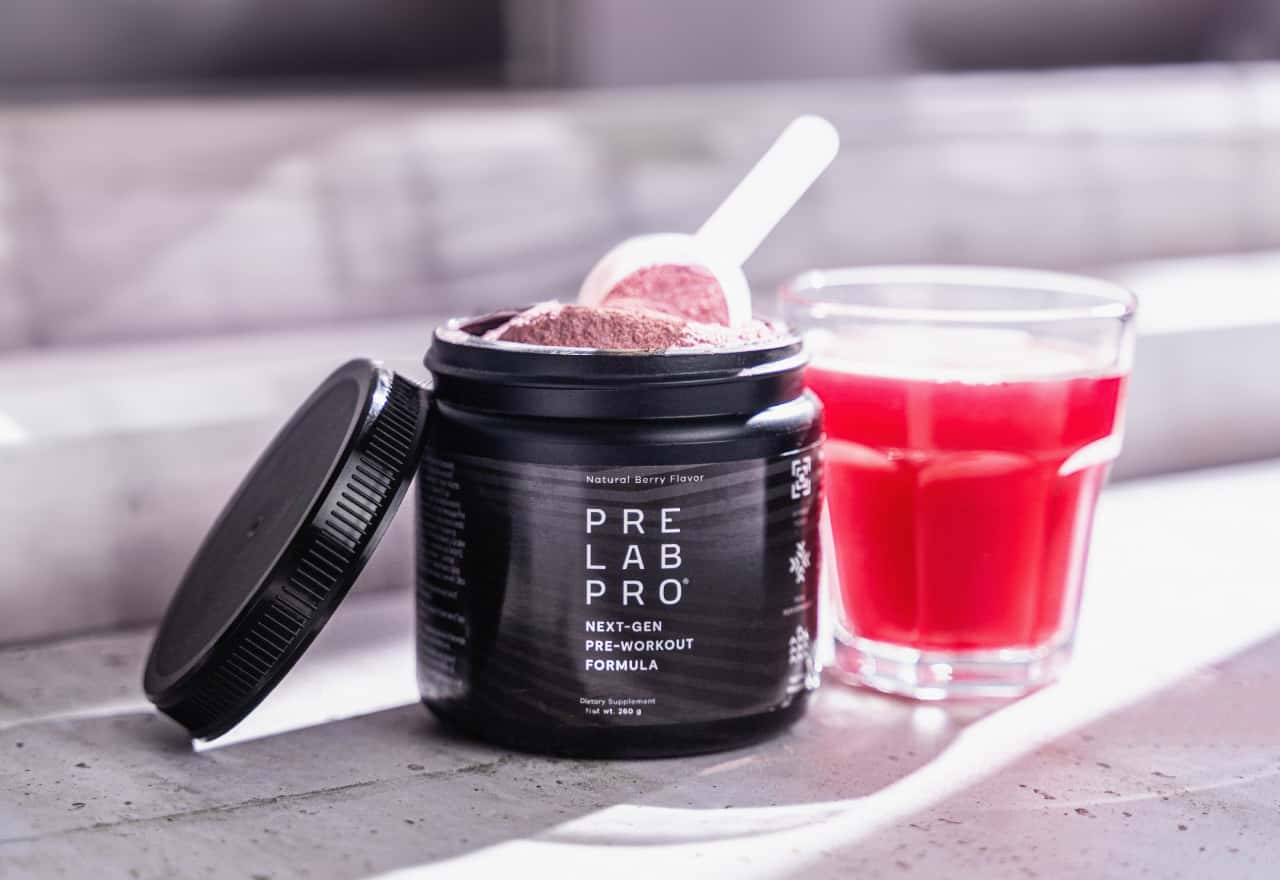
Pre Lab Pro® is an ultramodern pre-workout supplement that features amino acid nootropics in a design that boosts both mental intensity and physical performance in the gym. Pre Lab Pro® ingredients, with aminos in bold, follow:
- Red Beetroot Powder, 1500 mg
- Setria® Performance Blend, 2200 mg
- Natural Caffeine, 80 mg
- L-Theanine, 160 mg
- L-Tyrosine, 400 mg
- Vitamin D3 (as NutriGenesis®), 500 IU
- Potassium (as NutriGenesis®), 49.5 mg
- Iron (as NutriGenesis®), 2.5 mg
- Himalayan Pink Salt, 500 mg
Why take it: Pre Lab Pro® is ideal if you want amino acids' combined benefits for mental and physical performance in one formula. It helps support strength, stamina, speed, endurance and more by pumping up muscles, energizing the body and sharpening the mind. It is also moderately dosed with caffeine, so you get alertness benefits with less jitters.
Buy Performance Lab® Pre Lab Pro® Now
Performance Lab® Caffeine 2: Clean Caffeine Enhanced with Amino Acids
If you use caffeine as a nootropic, you should definitely consider taking it with a side of amino acids. Caffeine 2 is a supplement that does just that. It combines caffeine with aminos and B-vitamins in order produce a superior stimulation state. The formula:
- Natural Caffeine (from Coffea robusta seeds), 50 mg
- L-Theanine, 100 mg
- L-Tyrosine, 250 mg
- NutriGenesis® Caffeine Balance B-Complex
Why take it: Caffeine 2 includes L-Theanine to reduce caffeine side effects and enhance alertness; L-Tyrosine to boost caffeine benefits while reducing jitters;. Its L-Tyrosine + NutriGenesis® B-Complex provide nootropic effects while restoring caffeine-depleted brain chemicals for healthy balance. It all adds up to cleaner, healthier stimulation that helps you achieve peak performance in body and mind.
Buy Performance Lab® Caffeine 2 Now
Performance Lab® Sleep: Top Sleep Supplement with Amino Acids
This sleep supplement taps amino acids' various sleep supportive bioactivities, such as unwinding tight muscles, promoting feelings of relaxed tranquility, and gently settling the entire central nervous system. Performance Lab® Sleep keeps its support clean and natural, supplying:
- Magnesium (as Magnesium Bisglycinate and NutriGenesis® Magnesium), 100 mg
- CherryPURE® (Whole Montmorency Tart Cherry) (50:1 concentrated ratio), 500 mg
- L-Tryptophan, 250 mg
- Organic Sea Buckthorn (Hippophae rhamnoides), 100 mg
Why take it: Tart cherry is a natural source of sleep-inducing melatonin. This formula's Amino Acids include magnesium bisglycinate (magnesium bound with the amino acid glycine), L-tryptophan and Organic Sea Buckthorn, which naturally supplies some of the top nootropic aminos. The result is a restorative night's sleep and a sharper brain during the day, with no groggy synthetic side effects.
Buy Performance Lab® Sleep Now
Nu:tropic - Nootropic Energy Snack Bar with Amino-Rich Foods
Nu:tropic is a "convenience snack" made with brain-healthy foods and infused with some of the best nootropic nutrients known to science. The result is a natural, clear-headed, long-lasting vitality boost. It satisfies distracting hunger pangs while nourishing the brain for healthy performance.
All 4 flavors of these bars are based on the same two protein foods, rich with brain-healthy aminos:
- Norwegian organic black oats: Oat protein contains a higher amount of essential amino acids than other grains, especially lysine, valine, isoleucine, threonine, histidine, and methionine.(26)
- Flaxseed: Preferred plant protein (high 82% protein quality score) due to its balanced, versatile array of aminos cysteine and methionine; branched-chain amino acids (leucine, isoleucine, valine) other amino acids such as lysine, tyrosine and threonine.(27)
Plus Nu:tropic bars supply nootropics like Omega-3, choline, phosphatidylserine (PS), B-Vitamins, Magnesium, Vitamin D3, MCTs (from coconut oil). And great natural flavors from chicory syrup, dates, cinnamon and more.
Why take it: Nu:tropic is a functional food that makes it easy to get nootropics into your day. This bar is also loaded with brain-healthy amino acids from great-tasting, organic food sources.
Buy Performance Lab® Nu:tropic® Now
Conclusion
Amino acids and brain function go hand in hand. While amino acids as nootropic compounds rely on a different philosophy compared to other nootropics, they are still effective.
They do not work in the same way as common nootropics, which focus on stimulating a particular pathway. Rather, amino acids support brain function by supplying it with the materials it needed to function optimally.
The balance and availability of these amino acids in the brain are essential for cognitive functions, emotional well-being, and overall brain health. Ensuring a diet rich in a variety of amino acids or, when necessary, supplementing specific amino acids under medical guidance, can support optimal brain function and resilience against cognitive decline.
Scientific References
- Dalangin R, Kim A, Campbell RE. The Role of Amino Acids in Neurotransmission and Fluorescent Tools for Their Detection. Int J Mol Sci. 2020 Aug 27;21(17):6197. doi: 10.3390/ijms21176197. PMID: 32867295; PMCID: PMC7503967.
- Kiani AK, Bonetti G, Medori MC, Caruso P, Manganotti P, Fioretti F, Nodari S, Connelly ST, Bertelli M. Dietary supplements for improving nitric-oxide synthesis. J Prev Med Hyg. 2022 Oct 17;63(2 Suppl 3):E239-E245. doi: 10.15167/2421-4248/jpmh2022.63.2S3.2766. PMID: 36479475; PMCID: PMC9710401.
- Sharma B, Lawrence DW, Hutchison MG. Branched Chain Amino Acids (BCAAs) and Traumatic Brain Injury: A Systematic Review. J Head Trauma Rehabil. 2018 Jan/Feb;33(1):33-45. doi: 10.1097/HTR.0000000000000280. PMID: 28060208.
- Suzuki H, Yamashiro D, Ogawa S, Kobayashi M, Cho D, Iizuka A, Tsukamoto-Yasui M, Takada M, Isokawa M, Nagao K, Fujiwara Y. Intake of Seven Essential Amino Acids Improves Cognitive Function and Psychological and Social Function in Middle-Aged and Older Adults: A Double-Blind, Randomized, Placebo-Controlled Trial. Front Nutr. 2020 Nov 25;7:586166. doi: 10.3389/fnut.2020.586166. PMID: 33324669; PMCID: PMC7724102.
- Fernstrom JD, Fernstrom MH. Tyrosine, phenylalanine, and catecholamine synthesis and function in the brain. J Nutr. 2007 Jun;137(6 Suppl 1):1539S-1547S; discussion 1548S. doi: 10.1093/jn/137.6.1539S. PMID: 17513421.
- Owasoyo JO, Neri DF, Lamberth JG. Tyrosine and its potential use as a countermeasure to performance decrement in military sustained operations. Aviat Space Environ Med. 1992 May;63(5):364-9. PMID: 1599383.
- Neri DF, et al. The effects of tyrosine on cognitive performance during extended wakefulness. Aviat Space Environ Med. 1995 Apr;66(4):313-9.
- Thomas JR, et al. Tyrosine improves working memory in a multitasking environment. Pharmacol Biochem Behav. 1999 Nov;64(3):495-500.
- Deijen JB1, Orlebeke JF. Effect of tyrosine on cognitive function and blood pressure under stress. Brain Res Bull. 1994;33(3):319-23
- Mahoney CR, et al. Tyrosine supplementation mitigates working memory decrements during cold exposure. Physiol Behav. 2007 Nov 23;92(4):575-82. Epub 2007 May 22
- Nobre AC, et al. L-theanine, a natural constituent in tea, and its effect on mental state. Asia Pacific Journal of Clinical Nutrition, 01/2008; 17 Suppl 1:167-8.
- Nathan PJ, Lu K, Gray M, Oliver C. The neuropharmacology of L-theanine(N-ethyl-L-glutamine): a possible neuroprotective and cognitive enhancing agent. J Herb Pharmacother. 2006;6:21-30.
- Deb S, Dutta A, Phukan BC, Manivasagam T, Justin Thenmozhi A, Bhattacharya P, Paul R, Borah A. Neuroprotective attributes of L-theanine, a bioactive amino acid of tea, and its potential role in Parkinson's disease therapeutics. Neurochem Int. 2019 Oct;129:104478. doi: 10.1016/j.neuint.2019.104478. Epub 2019 May 27. PMID: 31145971.
- Gomez-Ramirez M, et al. The deployment of intersensory selective attention: a high-density electrical mapping study of the effects of theanine. Clin Neuropharmacol. 2007 Jan-Feb;30(1):25-38
- White D, et al. Anti-Stress, Behavioural and Magnetoencephalography Effects of an l-Theanine-Based Nutrient Drink: A Randomised, Double-Blind, Placebo-Controlled, Crossover Trial. Nutrients. 2016 Jan; 8(1): 53.
- Kakuda T. Neuroprotective effects of theanine and its preventive effects on cognitive dysfunction. Pharmacol Res. 2011 Aug;64(2):162-8.
- Baba Y, Inagaki S, Nakagawa S, Kaneko T, Kobayashi M, Takihara T. Effects of l-Theanine on Cognitive Function in Middle-Aged and Older Subjects: A Randomized Placebo-Controlled Study. J Med Food. 2021 Apr;24(4):333-341. doi: 10.1089/jmf.2020.4803. Epub 2021 Mar 22. PMID: 33751906; PMCID: PMC8080935.
- Dodd, F. L. et al. "A Double-Blind, Placebo-Controlled Study Evaluating the Effects of Caffeine and L-Theanine Both Alone and in Combination on Cerebral Blood Flow, Cognition and Mood." Psychopharmacology 232.14 (2015): 2563-2576. PMC. Web. 1 Oct. 2016.
- Marí M, Morales A, Colell A, García-Ruiz C, Fernández-Checa JC. Mitochondrial glutathione, a key survival antioxidant. Antioxid Redox Signal. 2009 Nov;11(11):2685-700. doi: 10.1089/ARS.2009.2695. PMID: 19558212; PMCID: PMC2821140.
- Gonzalez AM, Townsend JR, Pinzone AG, Hoffman JR. Supplementation with Nitric Oxide Precursors for Strength Performance: A Review of the Current Literature. Nutrients. 2023 Jan 28;15(3):660. doi: 10.3390/nu15030660. PMID: 36771366; PMCID: PMC9921013.
- Allerton TD, Proctor DN, Stephens JM, Dugas TR, Spielmann G, Irving BA. l-Citrulline Supplementation: Impact on Cardiometabolic Health. Nutrients. 2018 Jul 19;10(7):921. doi: 10.3390/nu10070921. PMID: 30029482; PMCID: PMC6073798.
- Maffei ME. 5-Hydroxytryptophan (5-HTP): Natural Occurrence, Analysis, Biosynthesis, Biotechnology, Physiology and Toxicology. Int J Mol Sci. 2020 Dec 26;22(1):181. doi: 10.3390/ijms22010181. PMID: 33375373; PMCID: PMC7796270.
- Wang Z, Zhao F, Wei P, Chai X, Hou G, Meng Q. Phytochemistry, health benefits, and food applications of sea buckthorn (Hippophae rhamnoides L.): A comprehensive review. Front Nutr. 2022 Dec 6;9:1036295. doi: 10.3389/fnut.2022.1036295. PMID: 36562043; PMCID: PMC9763470.
- Utley A, Gonzalez Y, Imboden CA. The Efficacy of A Nootropic Supplement on Information Processing in Adults: A Double Blind, Placebo Controlled Study. Biomed J Sci & Tech Res 49(1)-2023. BJSTR. MS.ID.007746
- Abbott-Imboden C., Gonzalez Y., Utley A. (2023). Efficacy of the nootropic supplement Mind Lab Pro on memory in adults: Double blind, placebo-controlled study. Human Psychopharmacology: Clinical and Experimental, e2872. https://doi.org/10.1002/hup.2872
- Rafique H, Dong R, Wang X, Alim A, Aadil RM, Li L, Zou L, Hu X. Dietary-Nutraceutical Properties of Oat Protein and Peptides. Front Nutr. 2022 Jul 5;9:950400. doi: 10.3389/fnut.2022.950400. PMID: 35866075; PMCID: PMC9294724.
- Mueed A, Shibli S, Korma SA, Madjirebaye P, Esatbeyoglu T, Deng Z. Flaxseed Bioactive Compounds: Chemical Composition, Functional Properties, Food Applications and Health Benefits-Related Gut Microbes. Foods. 2022 Oct 21;11(20):3307. doi: 10.3390/foods11203307. PMID: 37431051; PMCID: PMC9602266.



